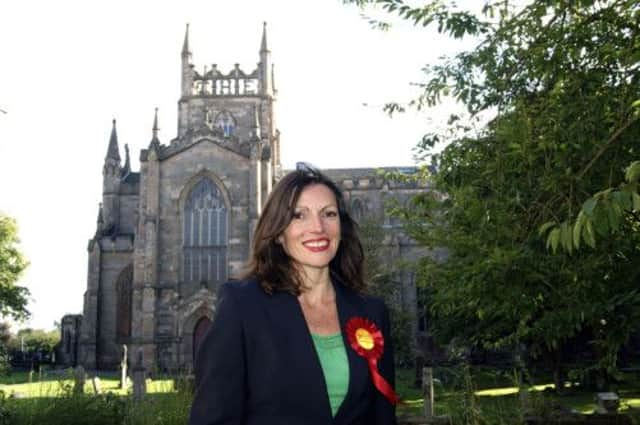Andrew Whitaker: All-female shortlist hard to doubt


Susan Dalgety, a former ministerial adviser to Jack McConnell, and pro-independence campaigner Kate Higgins – both writing in The Scotsman last week – urged the main parties to “make a strong statement about the place of women in our society” by choosing female candidates for the election in the wake of Bill Walker’s conviction for domestic violence.
Both Labour and the SNP have selected female candidates in Cara Hilton and former Nationalist MSP Shirley-Anne Somerville, with both parties choosing their candidates from shortlists made up of women.
Advertisement
Hide AdAdvertisement
Hide AdHowever, of the main parties it’s only Labour that has formally operated all-women shortlists over a long period of time for the selection of its candidates.
It’s fair to say Labour’s policy of all-women shortlists was one of the party’s successes during the 1990s and beyond.
True, the policy does not compare to, say, the success of the minimum wage, which ended workers being paid poverty wages of as little as £2 an hour under the Tory governments of Margaret Thatcher and John Major.
However, it’s worth remembering that as a consequence of Labour first promoting all-women shortlists in half of winnable and marginal parliamentary seats at the 1997 General Election, the number of women Labour MPs rose sharply from 36 in 1992 to 101 five years later.
The resistance of the Lib Dems, Tories and SNP to all-women shortlists had arguably hindered the aspirations of the parties to return more women politicians, with David Cameron’s party on 48 at Westminster and the Lib Dems on seven women MPs.
Labour’s use of all-women shortlists has at times proved controversial, with the party hierarchy perhaps not always handling the policy in the most appropriate way.
At times, all-women shortlists have been imposed on some local Labour parties without the right level of consultation and there was a perception that the policy was, at times during the New Labour years, used as a means of delivering a seat to a favoured Blairite candidate, while blocking a party member from the Left.
An example of the way all-women shortlists were possibly only open to a certain type of Labour woman was in 1995, when Left lawyer Liz Davies was blocked as a candidate by party leaders despite overwhelmingly winning a selection contest among party members in the seat of Leeds North East.
Advertisement
Hide AdAdvertisement
Hide AdHowever, it’s probably fair to say that all-women shortlists are a necessity, as without the policy its hard to see how female representation in the Commons or even at Holyrood would have risen significantly, particularly when the relative failure of the Tories and Lib Dems on the issue is considered.